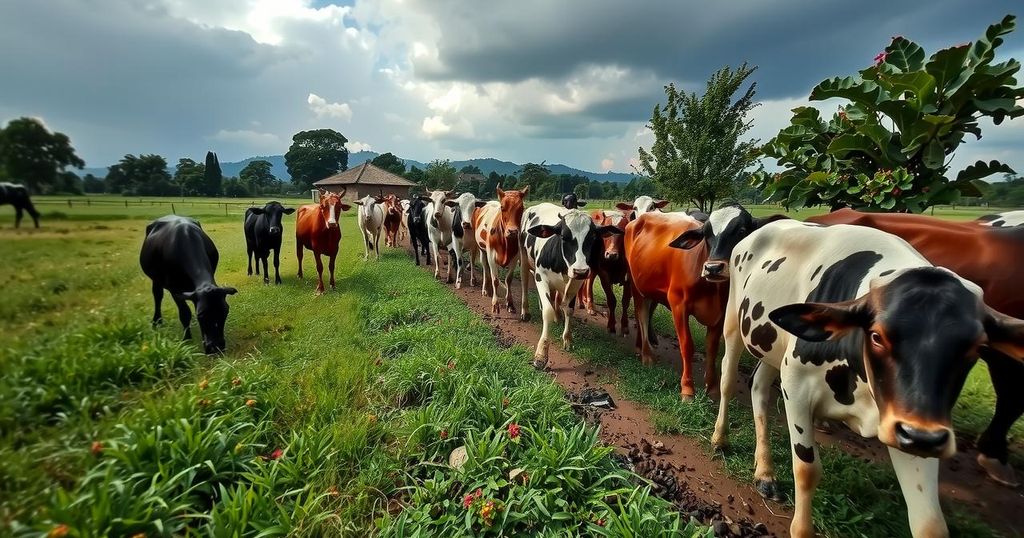Climate change has intensified livestock diseases along the Kenya-Uganda border, leading to conflict and economic strain among pastoral communities. These diseases threaten livestock health, necessitating coordinated health interventions and collaborative resource management to ensure the sustainability of livelihoods and maintain regional peace.
The ongoing tensions along the Kenya-Uganda border have been exacerbated by climate change, resulting in the emergence of transboundary livestock diseases that threaten both pastoral livelihoods and regional stability. Since the initiation of the Lokiriama Peace Accord in 1973, the border region has experienced significant peaceful coexistence, fostering cross-border trade. However, the current scarcity of pasture and water, largely attributed to prolonged droughts in Turkana, has compelled pastoralists from various regions such as Loima and Lokiriama to seek refuge in Uganda’s Karamoja region. This migration, although necessary, has led to increased conflicts as armed bandits exploit the vulnerable situations of herders. Local herders, like Mr. Korobe Ngasike of Nawountos village, express concerns over animal diseases that have proliferated due to climate changes. They contend that as they search for pasture, they often settle in areas burdened with cattle vector-borne diseases and viral ailments that directly threaten their livestock. The herders point out that changing weather patterns lead to varying disease outbreaks, challenging their traditional methods of responding to livestock theft and restocking. Meanwhile, peace-building efforts have included plans for joint health initiatives aimed at vaccinating livestock to foster sustainable pastoralism and promote community coexistence. Representatives from both Kenya and Uganda, including Turkana Governor Jeremiah Lomorukai and Ugandan Minister for Karamoja Affairs Peter Lokeris, emphasize the importance of mutual cooperation to face emerging challenges. They advocate for the swift finalization of revised agreements that share resources to enhance socio-economic development in the border area. It is stressed that these agreements could significantly aid in addressing the pressing issues faced by these pastoral communities while maintaining the hard-won peace. Collaboration and improved communication between government officials and pastoralists are seen as vital steps in mitigating the negative impacts of diseases, which continue to threaten livestock health and, by extension, the livelihoods of border residents. As further developments unfold, the ongoing commitment to peace and cooperation remains crucial to addressing not only the health crises stemming from climate change but also the socio-economic advancement of both nations.
The article highlights the significant challenges faced by pastoral communities along the Kenya-Uganda border, particularly those arising from climate change. Transboundary animal diseases represent a serious threat, reflecting the interconnectedness of livestock health and regional stability. As these diseases spread across borders due to climatic factors, they underscore the necessity for collaborative efforts in health management and resource sharing among the communities and their governments. The historical context of peace accords serves as a backdrop to the current challenges, illustrating both the progress and setbacks experienced in maintaining stability in this region.
In conclusion, climate change-induced diseases have emerged as a pressing reality for pastoralists along the Kenya-Uganda border, jeopardizing not only their livestock but also the fragile peace established over decades. The need for coordinated health interventions and resource-sharing agreements is paramount to safeguard the livelihoods of these communities. Political leaders and local stakeholders must work collaboratively to reinforce relationships across borders, ensuring that both health and socio-economic stability are prioritized in the face of evolving challenges posed by climate change.
Original Source: nation.africa






